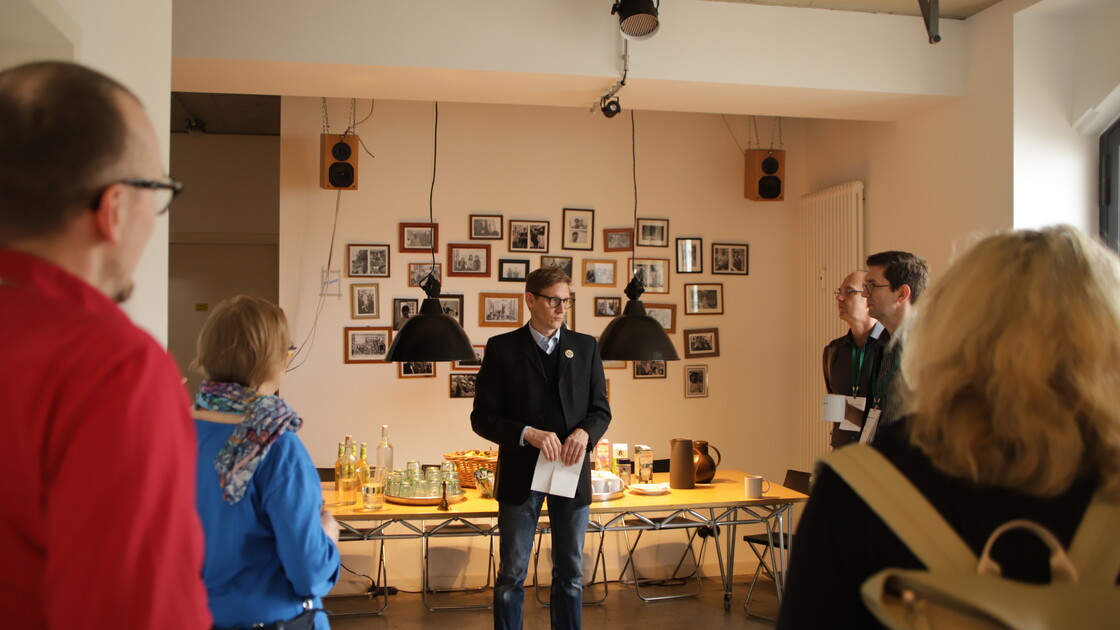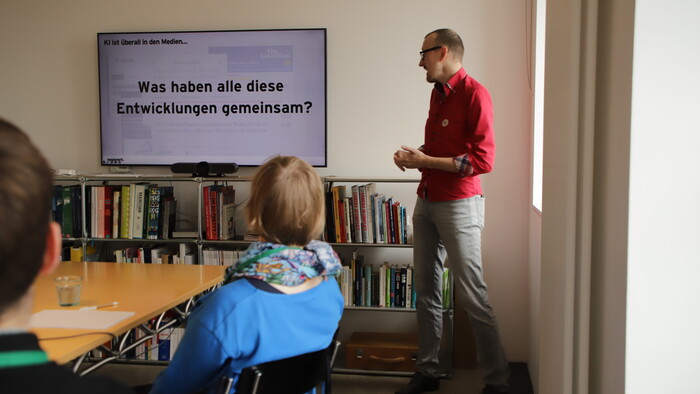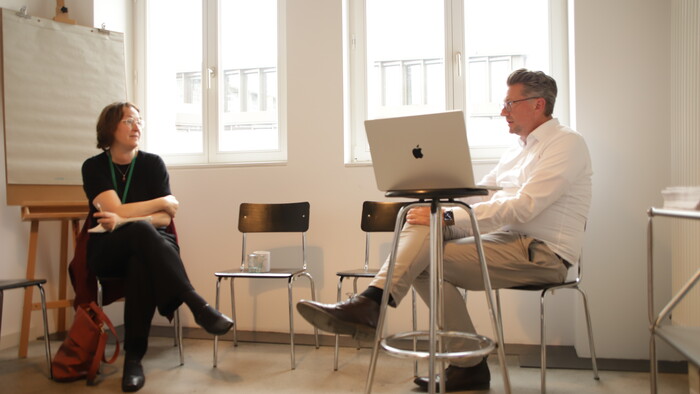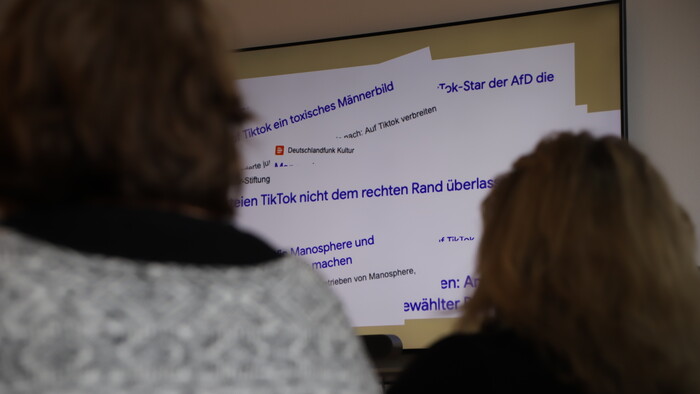Our "wissenswerk" AI and TikTok for non-profit organisations: setting new pulses.

The advantages of artificial intelligence and disruptive social media platforms such as TikTok – even for non-profits – are obvious. We have examined these technologies and trends for their applicability in the social and political sphere and pooled our experiences at wissenswerk.2025.
New technologies are not only turning the communications industry upside down. But for non-profit organisations in particular, this raises far-reaching questions: How ethical is the use of artificial intelligence? How do we use AI sustainably? Is TikTok a good fit for our organisation? How do we present ourselves on social media in line with our values?
As a communications agency, we provide our clients with comprehensive advice on these issues, take their concerns seriously and identify solutions. With this in mind, we offered our ‘wissenswerk’ format in September 2025 and opened our doors to clients and other interested parties. In a relaxed atmosphere with drinks and finger food, we provided inspiration, shared knowledge and encouraged exchange and networking.
Four keynote speeches structured the afternoon:
When machines learn to think. An introduction to artificial intelligence. The use of LLMs – sensible, feasible, justifiable?

Everything revolves around AI: it is omnipresent, billions are being invested in it, and it is being incorporated into products everywhere. But how does AI actually work? What is behind the so-called hallucinations that apparently cannot be controlled? And are we on the verge of machines taking over, or is it just a bubble about to burst? Web developer Alexander Schulze explained the history and background of ChatGPT and Co. in order to provide a generally understandable classification of the hype. And what options are available for those who use AI but do not want to be dependent on large companies.
Digitally present. Accessible websites between aspiration and implementation. Can AI contribute to digital inclusion?

The issue of accessibility has been on our customers' minds for a long time. Not just since the Federal Monitoring Agency for Accessibility of Information Technology began issuing formal warnings. An accessible network also means making the network and all its opportunities for participation accessible to an ageing society. But what constitutes accessible design? According to Jürgen Scheper, strategic consultant, only accessible design is good design. He provided tools and specific implementation tips.
How to TikTok. Getting started, community and the power of bubbles. How does this benefit me as a non-profit organisation?

Opinions are divided on TikTok: dance videos, Nazis, teenagers – these were the first associations that came to mind for participants in the keynote speech by Lisa Mürmel, social media editor at wegewerk. Yes, it's true, TikTok started out as a dance platform, but today it is much more than that: TikTok has grown older and become more political. But with an interaction rate of 17.5 per cent, TikTok can be an important network for anyone who can handle the humour, harsh tone and fast pace of the platform. Lisa encouraged participants not to leave the platform to the right-wing bubble, but to take a stand as NGOs and create social safe spaces.
Visibility reimagined. How AI is changing SEO and creating GEO. How visible is visible enough?

Ever since Google started delivering AI summaries in search queries, there has been widespread concern: will we still be found on the internet? Jürgen Scheper took a closer look at the data and gave the all-clear. Even though AI summaries provide initial, superficial information, users still visit websites for more in-depth research and even stay there significantly longer. But search is changing – instead of keywords, people are now formulating entire questions. Organisations must also adapt to this, making their online presence more dialogue-oriented and clearly labelling content provenance (origin).
Four presentations, multiple ideas and a powerful need for discussion
The presentations were followed by a relaxed get-together, where the newly gained insights were lively discussed and classified. The need for exchange is and remains great in the fast-paced digital age. The next wissenswerk is already in the planning stage, but we are also happy to advise you until then!